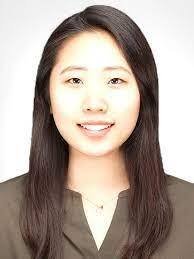Home Tutors Singapore
Don't get left behind - your grades determine the class, school, junior college, polytechnic and university that you are accepted into
About 70% of our customers are repeat clients - they either hire tutors from us for additional subjects for the same child, or they hire tutors for their other children.
Learn Fast is trusted. Because our tutoring methods work.

Content contributor:
Daisy Lim –MSc Organic Chemistry (University of Wisconsin-Madison)
Director of Academic Pedagogy, Learn Fast Singapore
Since 2009, we have transformed our students' fail grades to B's and A's at the national exams
Write your own success story. Starting today
Singapore's most dependable tuition agency
- 47,000 qualified and experienced tuition teachers
- Over 35% of our tutors have PhD’s, Master’s, or are NIE-trained MOE teachers
- 85% of our tutors are graduates or undergraduates from Singapore’s best publicly-funded universities (NUS, NTU, SMU, SUTD, SUSS and SIT)
- More than 96% of tutors who apply to join the Learn Fast team have at least a Bachelor’s – or are about to achieve one – from the top local universities or the best universities globally (Oxford, Cambridge, LSE, Ivy League)
- All of our tutors scored A’s in the subjects that they are teaching
- Our tutors have between 2 to over 30 years of home tuition experience
- Each of the tutors whose profiles we show you have strong proven records of rapidly boosting their students’ grades
- Non-performing tutors are not included in our database
Transform your grades.
Today
Primary I private tuition
Primary 2 private tuition
Primary 3 private tuition
Primary 4 private tuition
Primary 5 private tuition
Primary 6 private tuition
PSLE private tuition
Secondary 1 private tuition
Secondary 2 private tuition
Secondary 3 private tuition
Secondary 4 private tuition
GCE O Level private tuition
International Baccalaureate IB private tuition
Integrated Programme IP private tuition
Junior College JC1 private tuition
Junior College JC2 private tuition
GCE A Level private tuition
Polytechnic-level private tuition
University-level private tuition
Online tuition in Singapore
Tuition At Home. Hire an accomplished private tutor in Singapore
Start tuition with tuition teachers who has excellent proven records
Tutors in Singapore: Please ensure that you have registered at: https://learn-fast.org/tuition-jobs-in-singapore-north-east-west-central/
We are not able to accept any tutor registrations through this Hire Tutors form. Thank you.












Give your grades a makeover
The main reason for scoring low grades is: "I can't understand the content"
Different students have different starting points.
Something that may be easy for one student (or one of your children) may not be so easy for someone else.
Everyone learns differently, whether it be faster or slower than normal. Some of us learn better by writing, reading or discussing.
Catch up now, before you continue lagging behind even further, during the remainder of the academic year.
Right now is the perfect time for you to close up your learning gaps in that difficult chapter.
If these gaps aren’t addressed before the next chapter starts,
these learning gaps will only widen, and you will find it much harder to catch up to your peers. Your grades will suffer, and you will hate that subject.
While your classmates are able to go on to score an A.
Studying is easier when you are taught proven methods to learn what is difficult to you.
Learn Fast has the expertise to help you to do very well.
We will teach you how to focus on processes and techniques that produce higher marks, instead of requiring you to memorize and write useless notes and answers.
Our exceptional tuition teachers will show you the quickest and most efficient way to understand complicated content, so that you can swiftly achieve subject mastery.
The latest MOE syllabus does not reward students who blindly memorize
You can score much higher marks once you can successfully answer exam questions that require you to analyze and connect concepts across 2 or more topics.
A textbook is only as good as the teacher who uses it.
The textbook is designed as the main source of information.
However, we all know that national exams often ask questions that are not found in the textbook.
Students from average mainstream schools wrongly assume that learning is simply just a collection of facts and figures.
And that their textbook has all the answers to all the questions that appear in exams.
Weaker students tend to see learning as an accumulation of “correct answers”.
They would therefore think that plainly memorizing these “correct answers” will help them to pass or achieve a B3.
It is very risky for you to look at crucial content from only one perspective, or to focus purely on the content that is recommended in the textbook.
Students in the good schools never rely on only one source of information because they know that the exam questions expect them to be able to connect SEVERAL related or seemingly-unrelated concepts in order to arrive at the acceptable answer for challenging and tricky exam questions.
You are scoring low C's or high B's, and want a strong A
You will lose valuable marks when you simply just memorize formulas and content, but do not REALLY know when and how to use or apply them.
Carelessness and nervousness also cause students to lose marks.
Some tuition teachers are lazy, and they would take up the entire 1.5 or 2 hours with their students by making them practice on workbooks again and again.
Or worse still, they make you memorize “model” answers in the hope of being able to “guess” or “predict” the topics and questions that will be tested.
These methods are dangerous.
Imagine how terrified you will feel when you find that most of the actual questions in your school or national exam are not the ones that your tutor and you “spotted”.
If you do not know why and what are the exact mistakes that you are making, you are training yourself to keep repeating the bad habits of using the wrong content and answering methods.
When you start to get used to these very unacceptable routines, you will have more difficulty in nurturing your capacity to logically and calmly analyze what the exam question actually wants you to do.
Any effective tuition teacher who had himself/herself scored an A for that subject (and who has extensive tutoring experience) would know that the current MOE syllabus arranges all the topics within the curriculum in an integrated way, to test the student’s ability to apply the fundamental and advanced knowledge that was taught.
Professional and experienced tuition teachers from Learn Fast will help you connect the concepts across topics, which is a very important skill that you absolutely need to have, in order to get your A.
Hire a winner
It is very easy for parents to find tuition teachers who are university graduates or undergraduates – because there are already so many of them now, in Singapore.
Every year, there are over 40,000 Singaporean students (Year 1 to Year 4, Master’s, PhD etc) studying at the NUS campus alone.
At least 40% of each cohort of people born in the same year are accepted into the government-funded universities (NUS, NTU, SMU, SUSS, SIT and SUTD).
Another 20% to 30% of this same cohort would have graduated from university-level programmes offered by private institutions, after they completed their polytechnic or junior college studies.
This means that 70% of every cohort of people born in a certain year would have at least a Bachelor’s degree.
Over 96% of tutors who apply to join the Learn Fast team have at least a Bachelor’s – or are about to achieve one – from the top local universities or the best universities globally (Oxford, Cambridge, LSE, Ivy League).
Our agency selects only experienced undergraduate or graduated tutors who are patient, committed, and who are professional tuition teachers.
Most of all, they MUST have a proven track record of delivering improvements of 10 to 30 marks for their recent students, before we include them in our database and tutoring team.
This way, our clients know that they are hiring winners who can quickly help their children’s grades improve dramatically within 1 to 2 semesters.
Achieve a breakthrough in the subject you are now dreading
Our tutors are approachable and friendly
All because we are expert tuition teachers, it does not mean that our lessons have to be boring.
Many students start lessons with our tuition teachers feeling afraid of the subject, because they are discouraged by their previous experience and feel too overwhelmed (or embarrassed) to approach the subject positively.
Home tutors that are skillful in listening and observing often pick up on what isn’t being said – such as any underlying anxieties that a student may have.
Indeed, if an educator can truly understand a student, he or she can then target the root causes of the student’s low marks. This will help the student be more receptive to learning the content that is being taught.
An effective tutor needs to be adaptable. This is because students often have different moods (enthusiastic, desperate, reluctant, friendly) during each of the tuition sessions. The tuition teacher has to adapt the teaching strategy to handle each of these moods, in order to be productive.
If you were to imagine the perfect teacher that you want to be teaching you that difficult content or subject, you are going to want someone who is very engaging in front of the student.
Our tuition teachers know that it is so important to be observant, patient, flexible, empathetic and to always have a positive attitude.
Client Reviews
We found Ms Michelle from our usual tuition agent, Learn Fast. Within the same afternoon that I contacted them, we received profiles of 6 very good tutor profiles. Ms Michelle has almost 15 years of experience as a Math tuition teacher, and has a Master’s in Applied Mathematics from Oxford University. I am really satisfied with the fast progress that both my children have been making.
Madam Ang
My family does not speak Chinese at home and I didn’t like Chinese blogs, movies, songs or news in general. I wanted a tutor who could just tell me what I needed to do to in order to score a B for my O Level Chinese, because I had been failing Chinese too often. I wasn’t expecting that Madam Mei Yin would be able to get me interested in writing my own blogs in Chinese! She started teaching me in Sec 1, and by my O Levels, I was able to get an A.
Alvin Teo
Paper 1 for English is difficult for me. My vocab has been weak since P3, and I am not good at creative writing. Ms Chong is a former MOE teacher and is very cheerful. I feel a lot more confident whenever she teaches me how to stretch my imagination. She has very good ways to help me expand my vocab and improve on my grammar. I scored AL2 for my PSLE English.
Andrea Toh
Science was my 2nd best subject throughout primary school. I continued to enjoy Science in Secondary 1, but it was getting more and more difficult to give the answers that the teachers expected. Mr Xian Wei had written the Science syllabus for a top tuition centre, so he is very familiar with how I should answer the different question types. I’m back to scoring A’s.
Yi Xing Kee
Physics in secondary school was quite alright, but I got my first B in the earlier part of JC1. I decided that I needed a highly qualified tutor who could guide me in answering the difficult questions. Mr Benjamin has a PhD in Physics from NUS and has taught me valuable answering techniques and useful advanced thinking skills.
Shaalini Gejendhiran
I want to major in Economics when I enter university. I am mostly scoring A’s, but I sometimes get a B. This makes me worried because what if I am not able to answer any difficult questions that come up? Much safer for me to get a reliable tutor who could teach the correct analytical and application skills that I need to get a strong A. Mr Yew Boon is just awesome. My writing and analysis has become much sharper.
Qinyi Khoo
How to choose a good tuition agency
Good tutors want to be represented by a reputable tutor agent
The size of the tutoring team is very important. The larger the database, the better the chances that the tuition coordinator can find the best tutor whose experience and qualifications suit your requirements.
You should choose agencies that have a minimum of 25,000 active home tuition teachers in their database.
At least 30% of any credible tuition agency should consist of tutors who have PhD’s, Master’s or are NIE-trained MOE teachers.
The better tuition teachers want to join only the best tuition agencies in Singapore.
They know that dependable tutor agencies have more clients, and numerous good assignments for them to choose from every day.
Many of our parents/students avoid agencies that have more than 20% of their tutors whose highest academic qualifications are polytechnic diplomas or junior college certificates.
Parents would pay rates that they feel are fair and appropriate, according to the tutor’s track record, academic qualifications, and number of years of experience. Tutors accept an assignment based on hourly rates, the grade target/current level of skills of the student, and the availability of slots in their teaching schedules.
They know that the market rate of hourly fees charged by experienced university undergraduates majoring in the same subject that they are tutoring is $30/hr. The rates of tutors who had stopped studying at JC or polytechnic levels is $20/hr to $25/hr. This is a only a marginal difference in tuition hourly rates.
How would you be able to know if a tuition agency’s database comprises mainly of lower-qualified tutors?
Their websites will always emphasize “affordable tuition rates” as their main or only attraction.
Given that the difference in monthly rates between a polytechnic graduate and a university graduate is only about $30 – and in most cases, are at the same rates or sometimes even lower than group tuition – “affordable tuition rates” shows up in websites whenever a tuition agency does not have tutors whose other clients are already paying them higher rates.
Good tuition agencies require that their tutors have at least 2 years of tutoring experience before including their details into the tuition agency’s database.
This is to ensure that the tutor has the requisite commitment to being a good tutor, as well as the relevant experience and track record of improving their students’ grades, and are not experimenting with your child’s academic future.
University undergraduates or graduated tutors tend to have easily scored comfortable A’s in the subjects that they teach, and most parents would of course prefer that their children are taught the correct content, as well as skills in answering difficult questions.
If the tutor was not able to score A in say Physics, can he/she help you score an A?
Be wary of tuition agencies that promise to show you profiles “immediately”.
If a tuition agency has a large pool of eligible and qualified tutors to reach out to for your assignment, it takes time for good tuition teachers to respond.
Agencies that get back to you “immediately” with tutor profiles are either not thorough, or worse, have only a very small tutor database.
Good home tutors might not respond immediately when they receive tuition assignment messages – because they are very likely to be busy teaching during that time and are not desperately and idly sitting around hoping for messages to arrive.
Tuition teachers typically apply for assignments between 2 to 12 hours after they have received the assignment message.
If a tutor waits too long, it might indicate that the tutor is not keen to take on more assignments at that hourly rate, or worse, has time management/punctuality issues.
A good timeframe for a dependable tuition agency to get back to you with profiles of responsible tuition teachers should be 6 to 12 hours after you have given them the description of what you are expecting of your tutor.
Trustworthy tuition agencies hire university graduates as their tuition coordinators because graduated coordinators can properly understand the academic and learning needs of tuition students.
There is no difference in the hourly rate that you pay to your home tutor, so you might as well get the best value for money and professional service when you are looking for a good home tuition agency.
Tuition coordinators who are university graduates will be able to ask the assignment applicants the right questions in order to assess if he or she is truly able to teach according to your requirements – even if the tutor claims to have 8 to 10 years of tuition experience.
Because at least 70% of each age cohort has at least a Bachelor’s degree, it will be easy to find tuition agencies that hire only university graduates as their tuition coordinators. How would you know if the coordinator is likely to have at least a Bachelor’s? Through his or her English grammar and vocabulary, when you call or Whatsapp the agency.
You should also look at the tuition agency’s website and blogs.
The passion that the tuition coordinators and management have for the MOE subjects clearly shows if the agency is really qualified to help you find suitable tutors.
If the tuition agency cannot be bothered and does not have the capacity to post the latest content and interesting developments that engage their discerning tutors, parents and students, would this tutor agency genuinely have enough outstanding tuition teachers?
The way that the tuition agency prepares the tutor profiles indicates the quality of the tutor.
Parents tell us that “testimonials” that are featured on websites of some tuition agencies are dodgy – who knows if these are real or made-up, even when there are “screenshots of comments by parents/students”?
When you read the tutor profiles that tuition agencies send to you, the tuition teachers who are truly successful would be able to clearly elaborate on their teaching achievements, the schools and university that they and their students attended, and MOST importantly, the type of grade improvements they helped their students achieve.
If a tutor does not describe all this important information well, then their teaching method might be blunt, cold, and might not tailor the teaching to suit your learning style. And this tutor probably has limited abilities to help your grades improve.
Practical exam preparation techniques
As it turns out, smart people tend to make more mistakes because of blind spots in their logical reasoning.
Often, it is likely to be the intelligent people that are excessively confident and arrogant.
The trouble isn’t with intelligence itself.
Like almost everything, it is how we use it that determines the outcome.
Careless mistakes are totally preventable, if only we had been paying closer attention.
An overloaded schedule, disorganization, and stress can all cause us to make unintended mistakes.
If we know why the mistake was made, we can correct the problem if we want it to be less likely to happen ever again.
Some steps that you can take to prevent careless mistakes include:
- Rushing through your work. Time management skills are vital whether you are doing your homework, practicing on a test paper from another school, or actually taking the school/national exam. You need to know exactly how much time you can afford to spend on each type of question. And what is the maximum amount of time you can spend on that question – no more than that, because any delays will affect the quality of your responses to the other questions in that exam.
- Recognize the patterns of mistakes you keep making. These patterns show to you the issues that you need to prioritize and address. If you keep making the same types of mistakes over and over again, you have to break the cycle. Ask your tuition teacher or school teacher why you are misunderstanding the exam question, and why you keep giving the wrong answers.
- Get mentally prepared before you start to answer the questions. When you get started, you will be able to focus completely on the task at hand rather than having to stop and panic when you are not sure how to answer the question. You will find yourself rushing through the question once there are too many interruptions to your thought processes. And this will lead to an even great risk of making many mistakes.
- Slow down. If you leave something to the last minute, you will be under pressure to squeeze in information that are important or trivial. The stress and tension of that pressure leads to mistakes, as does the tendency to take short cuts just so that you can meet the deadline. Sometimes, it is hard to figure out how much time you need to complete your answer – especially if it is a question that is unexpectedly more difficult than what you had been practicing for. Just give it your best guesstimate, then add at least 30% more time than the time you estimated you would take to answer that question.
- Leave time to double-check. Carefully go over what you have done, so that you can correct any mistakes you might have made. Always review your work when you think you are done. This gives you the opportunity to catch any mistakes and rectify them before they cause bigger issues.
- Focus. Do not allow your mind to drift. When you keep your mind focused on the task at hand rather than allowing it to wander off, you will often find that a lot of those careless mistakes become a thing of the past. You are most likely to make careless mistakes when you are doing something you have practiced so many times before that you think you no longer need to think about doing it now. You have become so accustomed to the methods that you rely on that you stop questioning if what you are doing is relevant to being able to correctly answer this particular question. We can become complacent to the point where we no longer think our decisions through properly. Because you are not paying enough attention, it is easy to miss something. Whenever you feel your mind drifting, bring it back to be in touch with the important tasks at hand.
- Do one thing at a time. You will make fewer mistakes if you do not multi-task. It may seem like because you are under time pressure, you will need to get a lot done. In reality, you will get more done with fewer mistakes when you give your full attention to one task at a time. Having to constantly switch gears as you move from one thing to another is a good way to make mistakes you could have avoided if you’d just focused.
- Make checklists and to-do lists. Create lists so that you can get rid of mental clutter. If you’re trying to remember a dozen things, your mind is not focusing on the task at hand and a careless mistake is more likely to happen. Get in the habit of writing things down to prompt you on where your thought processes and conclusions are, and you will free your mind to concentrate better.
- Prioritize the content in your answers. Do important and complex tasks first when your mind is fresh. Look at what you have to do in order to answer the question well, and rank them in order of priority. If you get those out of the way when you have the most energy, you’ll be less likely to make mistakes.
Stress is a physical reaction to a person’s emotions.
Both positive events (for example, an upcoming birthday party) and negative events (for example, school exams, a change in family circumstances) can cause stress.
Two hormones are released when we feel stressed: epinephrine (the hormone responsible for the flight-or-fight response), and cortisol.
When there is too much cortisol in our bodies, there will be a long-term, negative impact on our metabolic rate, and ability to remember.
When we are stressed, we are likely to have some of these symptoms:
- Physical signs: Increased heart rate or blood pressure, tense muscles, regular and severe headaches, tiredness, sweating more than usual, faster breathing.
- Emotional signs: Feelings of helplessness, worthlessness; isolation and loneliness; anger, irritability and hostility; constant worrying and anxiety, and obsessive thinking; inability to enjoy yourself even when you used to love those activities.
- Behavioral signs: Unexplained gains or losses in weight, prolonged periods of having difficulty in getting good quality sleep.
- Cognitive signs: Pessimism, fearing that something bad is going to happen, inability to focus or concentrate, memory loss and absent-mindedness.
The following key tips can help you reduce how much stress you feel, and can improve your ability to cope with and eventually properly manage stress:
- Get enough sleep. Try to have at least 7 to 8 hours of sleep every night. Try to wake up and go to sleep at the same time each day. This might not be realistic every night of the week but it is good to aim towards this goal more often than not. When you regularize your sleep routines, you will be able to have deeper, more restful sleep. This is essential in reducing stress and improving your mood. You will have better memory recall, have a clearer mind, and be less likely to fall sick or be irritable. Your mental health and well-being depends on you getting enough sleep, as no one functions at 100% when they’re tired.
- Eat well. Having a balanced diet, and making the effort to eat nutritious meals can help you combat stress and boost your mood. Having the occasional treats of chocolate and fried food is fine, as long as at least 80% of your meals consist of fresh, healthy carbohydrates and proteins.
- Moving your body regularly. This balances the nervous system and increases blood circulation, helping to flush out stress hormones. Even a daily 20-minute walk makes a difference. Any kind of exercise can lower stress and improve your mood ― just pick activities that you enjoy and make it a consistent habit. Regular light and or heavy exercise improves your overall cognitive abilities and increases the amount and regularity of endorphins in your body. Exercise can help your body feel tired and fall asleep more easily at night. There is no need to overdo the intensity nor frequency of exercising: short walks around your home/school 3 to 4 times a week can lead to much improvement of mental health and a reduction of tense moods.
- Establish realistic expectations and goals. Try to manage your time schedule, workload and objectives so that you have enough time to study and relax. Keep track of the amount of work you need to do, and break them down into manageable chunks so that you can keep up with deadlines. Read tips about preparing for exams – revising for Math involves different techniques than studying for Science. Reduce any tendency you might have to compare yourself with others. Comparing yourself and your productivity to what others claim to have or be is a recipe for insecure feelings and stress.
- Don’t wait until the last minute to get important things done. Procrastinating might feel good when you are feeling lazy and unmotivated, but it always leads to increased stress. By pacing your time wisely when you are able to steadily complete tasks that you know are vital for your preparation for homework, assignments, assessments and exams, you can avoid a lot of panic. Do you ever feel like there aren’t enough hours in the day? People often get stressed when they feel that they are running out of time to complete a task: this could be study-related or even stem from feeling overwhelmed with social activities. However, simple time management techniques can help you to feel more relaxed and focused. Try to create a written schedule, allocating yourself time every day to relax or socialise. Divide your work into urgent and non-urgent tasks, and important and non-important tasks.
- Have a hobby. Stress is inevitable, and can never be completely avoided. Finding a sustainable and healthy way to reduce stress can go a long way in keeping the pressure from overwhelming you. You might want to consider spending time with family and friends, developing a hobby, baking/cooking, creating handicrafts, listening to music, watching Tik Tok or Youtube during the time when you are not spending on studying.
- Relaxation techniques. Easy methods include slow, calm and deep abdominal breathing; visualizing peaceful scenes; and repeating soothing words to yourself like “relax”, “calm”, or “everything is fine”.
- Take a vacation or short mental break from the things that are causing you so much stress. Getting away from it all can reset your stress tolerance by increasing your mental and emotional outlook, which makes you a happier, more productive person upon return. Remember to switch off your handphone, and disconnect from social media too!
- Laugh. Laughing out loud increases oxygen and blood flow, which immediately reduces stress. Spend time with a funny friend, or watch something silly online.
Stress can sometimes rise to dangerous levels and affect our physical, emotional and mental health.
Short periods of stress are normal and can often be resolved by something as simple as completing a task which reduces or by taking time to relax.
Work out what it is that’s making you feel stressed.
For example, is it exams, family or relationship problems? Try to find ways to change your circumstances so that you can ease the pressure you are under.
If we are constantly under stress, most of us will eventually start to function less well.
Ideally, we should establish a daily and weekly routine to engage in stress management strategies, because this helps us to respond to challenges and helps to minimize the feelings of being overwhelmed.
It is important to recognize stressful situations as they occur because it allows us to focus on managing how we react.
We all need to know when to close our eyes and take a deep breath when we feel tension rising.
Self-care is really important when we are facing challenges and experiences that have the potential to overwhelm us and create stress.
Stress is a natural part of life. However, too much stress can harm our health, especially if it continues every day.
This is chronic stress and can put you at risk for heart problems like heart disease and depression.
When you start to feel that you are not able to cope, do contact an adult, school counsellor, doctor, or friend whom you feel you can speak to about your concerns.
Stress thrives in the dark.
It convinces us we can’t cope, so it is always very useful to reach out to people who can help. Talking about what’s stressing you out can certainly be helpful.
Home Tuition In Singapore - Private Tuition Rates
Parents would pay home tuition rates that they feel are fair and appropriate, according to the tutor's track record, academic qualifications, and number of years of experience.
Tutors accept an assignment based on hourly rates for private tuition/tuition fee in Singapore, the grade target/current level of skills of the student, and the availability of slots in their teaching schedules.
Primary 1 - 3
- University Undergraduate $30-$40
- Full/Part-Time Private Tutors $30-$40
- MOE Teacher $40-$60
Primary 4 - 6
- University Undergraduate $30-$45
- Full/Part-Time Private Tutors $30-$50
- MOE Teacher $45-$65
Secondary 1 - 2
- University Undergraduate $35-$45
- Full/Part-Time Private Tutors $45-$55
- MOE Teacher $60-$85
Secondary 3 - 4
- University Undergraduate $40-$55
- Full/Part-Time Private Tutors $40-$60
- MOE Teacher $65-$90
Junior College
- University Undergraduate $50-$60
- Full/Part-Time Private Tutors $60-$80
- MOE Teacher $90-$120
University-Level
- University Undergraduate $60-$70
- Full/Part-Time Private Tutors $80-$120



